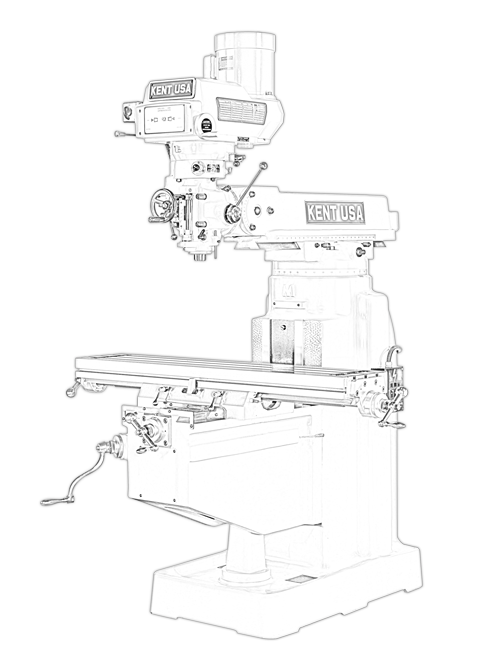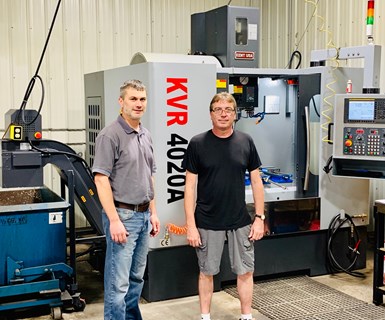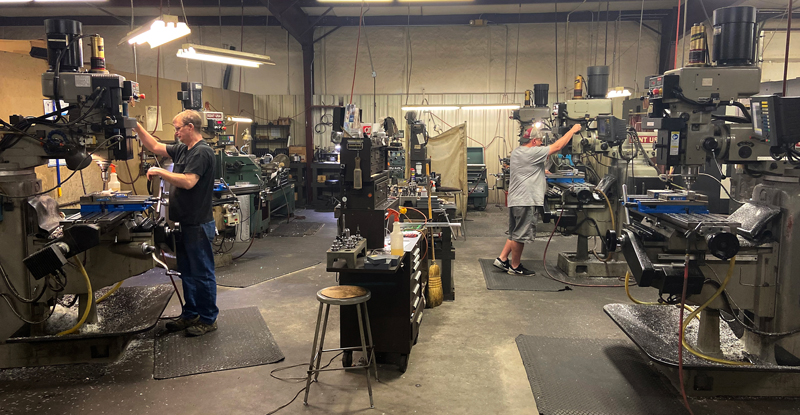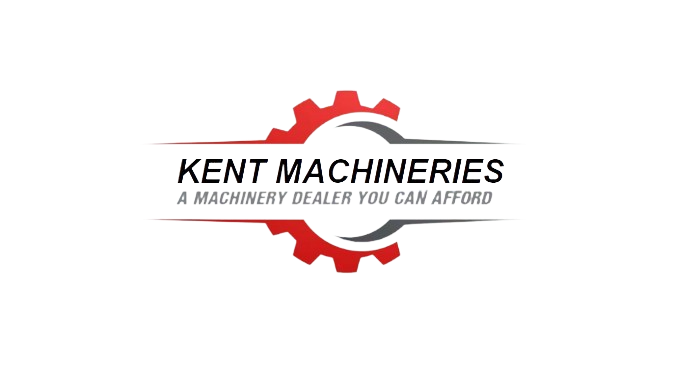Providing Machines Worldwide Since 1979

Founded in 1979, Kent Industrial USA, Inc. specializes in serving the needs of its clients in the machine tools industry. From our early model surface grinders to the latest, most advanced range of CNC equipment in grinding, milling, turning, and EDMs, we continue to offer top-quality machinery at competitive prices with superior service and support to our clients.
Our mission is to help machine shops and manufacturing facilities improve and maximize their efficiency and profitability. Our highest priority is to provide top-quality, precision machines to ensure long-term performance and productivity for our clients.
We stock a wide range of surface grinders, milling machines, CNC knee mills, CNC vertical and horizontal machining centers, lathes, CNC lathes, and CNC EDM machines for immediate delivery. Our parts department is not only well-stocked with parts, but is also staffed with knowledgeable technicians who will get the right parts for your machine the first time and every time. We ship the same day on most orders placed before 4pm (PST). This means a minimal amount of downtime for our clients. We take pride in having the highest standards for our top-notch service. Your needs and concerns are very important to us, and we will do everything we can to meet them and resolve any issues to your satisfaction.
Our service department has experienced, skilled technicians who will answer your technical questions and in many cases, solve your problem effectively over the phone. For more complex jobs, it may be necessary to service your machine on-site. We can completely rebuild your spindle or whole machine, if necessary. We can apply hand-scraping methods to properly retrofit your new CNC controls. No problem is too big or too small. Call us and we’ll help you arrive at the right solution. The solution that’s right for you.
We have established Kent USA distributors in other countries such as Mexico, Costa Rica, the Philippines, Indonesia, and many others.
Published Case Studies
Smaller, Faster VMC Reduces Cycle Times – Modern Machine Shop

Journeyman Machine’s larger 50-taper machines were too slow for milling smaller parts with tapped holes, but a 40-taper KVR 4020A vertical machining center from Kent USA reduced cycle time by 30%.
Every shop faces the same situation at one point or another: Their machine tools are either too large and slow to be competitive on smaller parts, or too small and underpowered for the larger parts. This was the case at Journeyman Machine and Supply Co. Inc. when shop supervisor Andy Hass and the company’s owners agreed that it was time to think small.
“In the past, we’ve always traded in our old machines and replaced them with new ones of comparable size and capabilities,” Mr. Hass says. “This time, though, we felt it made more sense to invest in a smaller, faster machine. The rapid travels and tool changes on our large 50-taper machines were just way too slow for machining retainer plates, clips and various other parts with small tapped holes.” The company ultimately settled on a 40-taper machine from Kent USA that provided higher spindle speeds and through-spindle coolant supply.
Machine shops are like families and communities. When tragedy strikes, everyone pulls together, picks up the pieces and starts putting lives and livelihoods back together. This was the case in August 2018 for T.D.C. Engineering Inc. in Campbellsport, Wisconsin, when an EF1 tornado, which has wind speeds from 138 to 177 kph (86 to 110 mph), that was the width of a football field ripped through the shop. Eighteen additional tornadoes hit the state the same day.
Luckily for owner Tim Grahl and his 10 employees, all but one of them had gone home for the day, and the remaining worker was able to shelter in the bathroom — the only part of the building left standing. T.D.C. Engineering’s lathes, wire and sinker electrical discharge machines, surface grinders, tooling, fixtures and six machining centers were all gone. Two small machines initially were considered salvageable, but he said they ultimately were scrapped along with the rest.
Vertical machining center (VMC) proponents say it’s the flexibility and lower cost that brought them to purchase this most common of CNC machine tools. Those who favor a horizontal machining center (HMC) suggest that better chip flow, higher rigidity, and access to more sides of the workpiece are what made them fans. Thanks to a recent equipment investment, Paul Cavallo, owner of American Made Group Inc. in Rancho Cucamonga California, has all of the above in a single machine.
“The nice thing about it is that you get the best of both worlds,” he said. “If a job comes in and my horizontal is tied up, I can use the Kent USA. The same goes for any vertical work that comes in. It’s just an extremely versatile piece of equipment, one that performs quite well for a variety of different parts and industries.”
Advice from a buddy – Cavallo is describing the KHV-400 combination universal horizontal/vertical machining center he purchased from Kent USA late last year at the urging of a friend, who services CNC machinery. “He used to work for Kent USA, and was always telling me, ‘Paul, you’ve got to check them out. They’re great machines.’ He was right. I’ve owned a lot of machine tools over the years, and construction-wise, I’d say that the KHV is better than 90% of what’s out there today.”


“Despite the widespread adoption of CNC machine tools over the past few decades, some shops remain on the fence, preferring manual equipment instead,” said a Kent Industrial USA spokesperson. “The reasons for this vary, but the most valid of them is that production quantities do not support the significantly larger investment in tooling, education and especially the machine tool itself. And while one might argue that a CNC lathe or machining center equipped with quick-change tooling and supported by offline presetting and CAM programming systems can actually compete quite effectively on ‘onesie-twosie’ work, reaching that bar admittedly takes substantial effort.”
The challenges of managing an all-manual machine shop, however, are twofold. The first is capability. Machining relatively simple shafts and brackets is a no-brainer on a manual machine, but what happens when the customer’s part designs grow more complex? What about 3D surfaces, non-orthogonal geometries, engraving and large or deep pockets, where the ability to remove massive amounts of material quickly and accurately is the difference between profit and loss?
The second is flexibility. While a seasoned machinist can bust out prototypes and handfuls of parts as quickly as the average CNC, the scales begin to tip as quantities rise. Are you going to turn away the work when prototypes move into production? This last statement brings up another objection to the purely manual approach, and that is the seasoned machinist needed to operate knee mills and engine lathes. Where does a shop owner or production manager find such people?
Wire electrical discharge machines (EDMs) are most often associated with precision tool and die machining, but it is important to note that this crucial manufacturing technology has numerous other applications besides trim dies, blanking punches and jig boring quality hole finishing. At the University of North Texas (UNT) in Denton, for example, researchers are using wire EDM to support their investigations into the metallurgical properties of several relatively novel machining and fabricating processes, 3D printing among them.
The machine? A WSi-200 Wire-Cut Submerge Type EDM from Tustin, CA-based machine tool company Kent USA.
“We primarily use the machine to cut material samples for testing and to slice 3D-printed parts off build plates,” said Supreeth Gaddam, a graduate research assistant who is working on his doctorate and is currently in his fourth year of study. He explained that his primary area of interest is friction stir processing, but added that the lab in which the WSi-200 is situated—the Advanced Materials and Manufacturing Processes Institute (AMMPI)—delves deeply into materials science and various manufacturing technologies.
AMMPI is led by Gaddam’s boss, Principal Investigator and Professor Rajiv S. Mishra. It is part of UNT’s Department of Materials Science and Engineering, which also houses the Center for Agile and Adaptive Additive Manufacturing (CAAAM). According to UNT, Discovery Park—the home for these two research facilities—features nearly 300 acres of space dedicated to the sciences, technology and engineering and is the region’s largest research park.
